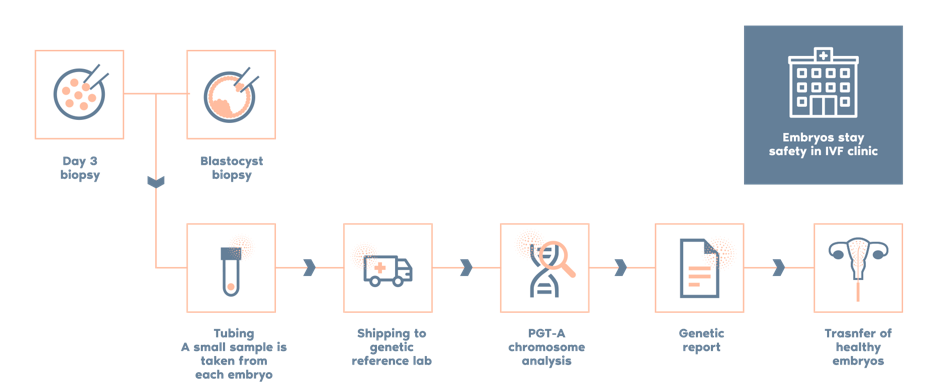Why use PGT-A?
- Reduced miscarriage rates.
- Higher pregnancy rates per transfer.
- Fewer cycles of IVF treatment needed – reducing both the time and financial cost
- Greater chance of having a healthy child.
- Fewer wasted transfers (implantation failure).
- Optional Single Embryo Transfer (SET).
- Fewer ‘wasted’ transfers with aneuploid embryos that could never lead to a successful pregnancy
- Optional Single Embryo Transfer (SET) to significantly reduce the likelihood of a multiple-gestation pregnancy

















